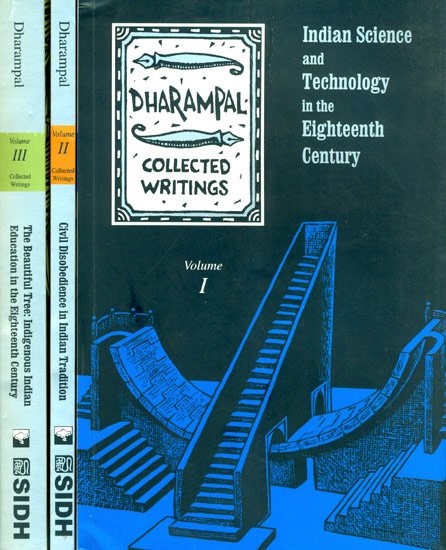Dharampal Collected Writings
author: Dharampal
edition: 2016, Other India BookStore
pages: 1835
ISBN-10: 8185569509
ISBN-13: 9788185569505
Topic: History
Volume 4: About the Book
The Village, as a unit of community, has long since disappeared in the industrialised West. The living countryside in Europe has been bulldozed to adapt nature and human beings to the requirements of the agribusiness machine. In India, in contrast, despite the tremendous disruption of the past two centuries, and despite the tyranny of development, the village community still remains the primary framework of production, interaction and governance for the bulk of the population.
When the country gained freedom, it was natural to assume that this village community—and not Western individualism—would be the basis of India's new democratic system. The country's founding fathers, however, were upset to discover that the architects of the new constitution had borrowed features from the political experience of every country in the world except our own. The verbatim debate in the Constituent Assembly on this issue—printed in full in this volume—painfully reflects this debilitating contradiction at the inception of India's independence.
Gandhiji described parliamentary democracy as the tyranny of the majority and instead laid stress on gram raj as the basis of swaraj. Dharampal's pioneering work on the panchayat system shows how in most parts of India, the perfunctory attention paid to panchayat raj has led to the continued disintegration of the sense of primary community. His work assumes fresh significance and relevance in view of the Constitution (73rd Amendment) Act on panchayat raj.
Panchayat Raj and India's Polity is the fourth in the series of five volumes of the Collected Writings of Dharampal brought out in a special edition by Other India Press and SIDH.
